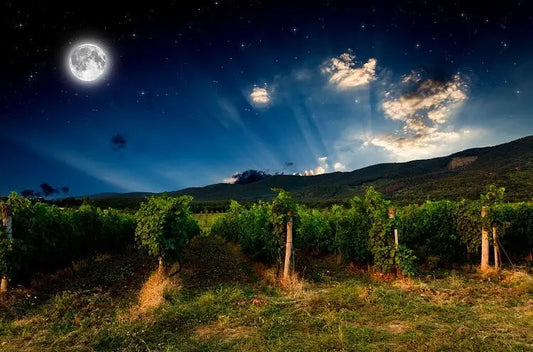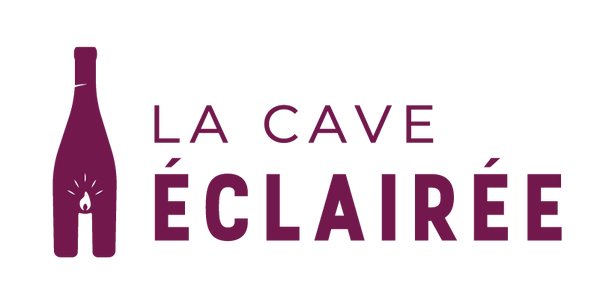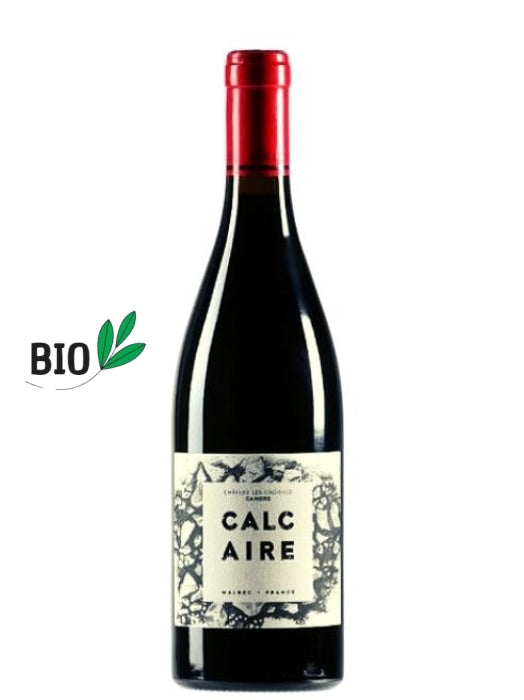Collection: Buy organic & biodynamic wines
-
Bernard Fleuriet & Fils - Sancerre - Anthocyane rouge 2022
(3 avis)Usual price 30,90€Usual priceUnit price / par -
Bernard Fleuriet & Fils - Sancerre - Côte de Marloup blanc 2022
(1 avis)Usual price 24,90€Usual priceUnit price / par -
Bernard Fleuriet & Fils - Sancerre - La Baronne blanc 2022
(3 avis)Usual price 27,00€Usual priceUnit price / par -
Bernard Fleuriet & Fils - Sancerre - Tradition blanc 2023
(2 avis)Usual price 20,50€Usual priceUnit price / par -
Bernard Fleuriet & Fils - Sancerre - Tradition rouge 2022
(3 avis)Usual price 20,90€Usual priceUnit price / par -
Château de Beaucastel - Châteauneuf-du-Pape blanc 2023
(2 avis)Usual price 99,00€Usual priceUnit price / par -
Château de Beaucastel - Châteauneuf-du-Pape rouge 2022
Usual price 98,90€Usual priceUnit price / par -
Château de L'Ou - IGP Côtes Catalanes - Infiniment rouge 2020
(2 avis)Usual price 25,50€Usual priceUnit price / par -
Château de L'Ou - IGP Côtes Catalanes - Secret de schistes rouge 2020
(1 avis)Usual price 34,90€Usual priceUnit price / par -
Château de la Selve - IGP Coteaux de l'Ardèche - Beaulieu (amphore) 2021
(2 avis)Usual price 16,50€Usual priceUnit price / par -
Château de la Selve - IGP Coteaux de l'Ardèche - Berty 2022
(2 avis)Usual price 21,50€Usual priceUnit price / par -
Château de la Selve - IGP Coteaux de l'Ardèche - Petite Selve rouge 2023
(2 avis)Usual price 11,90€Usual priceUnit price / par -
Château de Valois - Pomerol - Magnum
Usual price 63,90€Usual priceUnit price / par -
Château de Valois - Pomerol 2019
(3 avis)Usual price 32,90€Usual priceUnit price / par -
Château Laballe - IGP Côtes de Gascogne - Demoiselle moelleux 2023
(2 avis)Usual price 11,20€Usual priceUnit price / par -
Château Laballe - IGP Landes - Sables fauves blanc 2024
(2 avis)Usual price 9,50€Usual priceUnit price / par -
Château Les Croisille - Cahors - Calcaire
(2 avis)Usual price 15,90€Usual priceUnit price / par -
Château Les Croisille - Cahors - Croizillon 2022
(2 avis)Usual price 10,90€Usual priceUnit price / par -
Château Les Croisille - Cahors - La Pierre 2023
(2 avis)Usual price 23,50€Usual priceUnit price / par -
Château Les Croisille - Cahors - Silice 2022
Usual price 15,50€Usual priceUnit price / par -
Château Leydet-Valentin - Saint-Emilion Grand Cru 2020
(3 avis)Usual price 24,90€Usual priceUnit price / par -
Château Leydet-Valentin - Saint-Emilion Grand Cru 2020 - Magnum
Usual price 49,90€Usual priceUnit price / par -
Château Mille Roses - Haut-Médoc 2019
Usual price 21,00€Usual priceUnit price / par -
Château Mille Roses - Haut-Médoc Magnum 2020
Usual price 43,00€Usual priceUnit price / par
Organic wines, biodynamic wines, natural wines, what are the differences?
Organic wines
Organic wines follow the specifications of organic farming. The grapes are therefore grown without the use of pesticides, herbicides, or synthetic fertilizers. These wines are recognizable by the labels "AB"(Agriculture Biologique) and Euroleaf (the European organic logo), present on their bottle.
In order to convert a plot to organic farming, a period of three years is necessary. During this period, the vines and their grapes are grown organically but cannot yet claim official certification, as it takes time for the soil and vines to partially eliminate any traces of previously used chemical products.
In terms of winemaking, a large number of inputs are also prohibited and only those certified organic can be used. Furthermore, the maximum doses of added sulfites (the famous SO2) are also limited: 100mg/L for red wines and 150mg/L for white wines, which is respectively -33% and -25% compared to conventional wines.
Vineyards in certain regions benefiting from a dry and/or sunny climate, and thus limiting the occurrence of certain vine diseases, are more easily cultivated using the organic method. For example, we think of Alsace, Provence , Corsica or even Languedoc-Roussillon.
To date, about 20% of the French vineyard is managed using organic farming.
Biodynamic wines
Theorized in 1920 by Rudolph Steiner, biodynamic agriculture incorporates the basic principles of organic farming (such as the prohibition of synthetic pesticides or herbicides) but is even more restrictive. It is now certified by two labels : Demeter and Biodyvin.
In biodynamics, the goal is to be as non-interventionist as possible and to use only natural products in the vineyard and the cellar. In comparison, the biodynamic specifications prohibit the use of many additives that are allowed in organic farming.
Furthermore, biodynamics also adopts a holistic approach based on lunar rhythms as well as astral positions. Thus, many homeopathic treatments based on plants (nettle, chamomile, dandelion, etc.) are used to invigorate and enrich the soil and are planned on very specific days, according to the position of the planets.
Finally, the use of sulfur is even more restrictive. Thus, the maximum allowed doses are 70mg/L for red wine and 100mg/L for white wine, which is -30% and -40% respectively compared to the organic specifications.
To date, only 1% of the French vineyard is managed biodynamically .
Natural wines
Finally, natural wines are produced by applying the same basic principles as organic and biodynamic (prohibition of chemicals) but by further limiting human interventions and the products usable in the vineyard as well as in the cellar.
Thus, no additives are allowed in winemaking, the wine is meant to be as authentic and natural as possible, reflecting its terroir and the natural characteristics of the grapes used. Only ultra-minimal doses of SO2 (30mg/L maximum for red wines and 40mg/L for white wines) are allowed.
Furthermore, there is also within natural wines the category of S.A.I.N. wines (Without Any Input or Sulfite), following the principles of natural philosophy but completely prohibiting the addition of sulfites.
You will have understood, therefore, that organic, biodynamic agriculture and the "nature method" are production methods aimed at protecting the environment while aiming to produce the best possible wine. While none of these certifications are perfect and many debates exist around them, it is nevertheless widely accepted that these types of agriculture are preferable for humans and the earth compared to conventional farming methods.
Furthermore, the levels of added sulfites in organic, biodynamic, and natural wines are also lower, allowing many people who are sensitive or even intolerant to SO2 to enjoy quality wines without cramps or headaches !
There you have it, you now know the essentials about all these certifications, and all that remains is for you to make your choice from this beautiful selection ! And if you need advice, do not hesitate to reach out to La Cave Éclairée !
-

Conventional, organic, biodynamic, natural wine...
Here is a question that comes up (very) regularly! It must be said that the proliferation of labels does not really help the consumer to find their way... AB, HVE,...
1 commentConventional, organic, biodynamic, natural wine...
Here is a question that comes up (very) regularly! It must be said that the proliferation of labels does not really help the consumer to find their way... AB, HVE,...
1 comment -

What is biodynamics?
Biodynamics continues to divide opinions. Between fervent defenders convinced of the total validity of its precepts and fierce opponents describing it as a cultivation method with no scientific basis, a...
What is biodynamics?
Biodynamics continues to divide opinions. Between fervent defenders convinced of the total validity of its precepts and fierce opponents describing it as a cultivation method with no scientific basis, a...
-
✔️ 100% OF THE WINES TASTED
-
📦 FAST AND SECURE SHIPMENTS
-
🍷 IDEAL CONSERVATION
-
💳 100% SECURE PAYMENTS


























